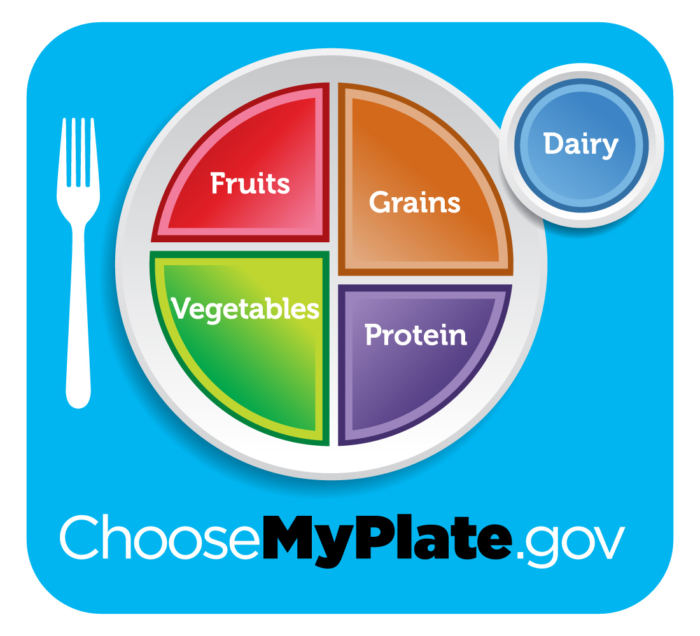I honestly wish I could say that I had published the review; 'The Global Influence of the Seventh-day Adventist Church on Diet', as it summarises the years of extensive research I have been doing, trying to prove that Gary has been 'Silenced' for advocating Low Carb Healthy Fat principles. It has never been about the science ...
The review is an amazing historical perspective on the ideology of the Seventh-day Adventist Church, and their subsequent influence on nutrition 'science' and dietary guidelines, world-wide.
I would think that this review publication, written by Seventh-day Adventists, should be compulsory reading for anyone who wants to study nutrition or write nutrition policy. Especially when you consider the current nutrition doctrine; which espouses grain as the sacred cow and demonises animal protein and fats, has come to be accepted as the gospel truth! The benefits of Wholegrain, Plant-Based diets are preached by the Dietitians Association of Australia, Diabetes Australia and the Heart Foundation of Australia, all with ties to Sanitarium Health and Wellbeing, a wholly owned Church ‘processed food company’.
I share the Abstract and Introduction to the Review (and link to the full article) after explaining a bit of my research and encourage you to take the time to read it.
My research into Vested Interests and Ideology promoting 'grain is good meat is bad' began in 2014 after discovering the expert witness in my husband's investigation was working for Sanitarium in Australia. Gary is an Orthopedic Surgeon in Launceston, Tasmania, who was investigated and subsequently silenced by the Tasmanian Medical Board of AHPRA for recommending that his patients reduce sugar and for advocating Low Carbohydrate Healthy Fat principles to improve health outcomes.
I believe he is the ONLY doctor in the world banned from providing Best Practice to his patients which has the potential to compromise their care and create harm. Luckily, he chooses to disrespect the Medical Board's decision.
Over the last 4 years I have become fascinated by the history of vegetarian/vegan 'plant-based' dietary guidelines. So much of it has come from Ideology based on the writings of Prophetess, Ellen G White, co-founder of the Seventh-day Adventist Church and her Health Reform Visions in 1863 encouraging the abstinence of alcohol, tobacco, spices, tea, coffee and meat. Her belief that it was 'the duty of the church to actively engage in public-health education to control desires and baser passions' set the Church apart from other major religious denominations.
Two statements that highlight the pro-grain and anti-meat beliefs of the Church were written by Ellen G White; "Grains, fruits, nuts, and vegetables constitute the diet chosen for us by our Creator" and “A religious life can be more successfully gained and maintained if meat is discarded, for this diet stimulates into intense activity lustful propensities, and enfeebles the moral and spiritual nature.”
Both Ellen G White and Dr John Harvey Kellogg advocated abstinence from 'flesh eating' to help dampen impure thoughts and 'animal propensities'. Eating against the Laws of Nature was believed to lead to 'self-vice' (onanism/masturbation) and thought to be the ultimate sin. Over time, the harms of eating meat became tied to other health issues. Ellen G White claimed that her 1864 Vision from God showed her 'meat causes cancer', too.
By 1900, Ellen G White began to focus her anti-meat message on cattle being diseased. The creation of a food industry (Sanitarium 1898) was to support the Adventist health message; "The health food business ... Its purpose is to supply the people with food which will take the place of flesh meat, and also milk and butter ... which, on account of the diseases of cattle, are becoming more and more objectionable." Australasian Union Conference Record, January 1, 1900. Counsels on Diet and Foods, pg 350.2 536
By the 21st century, neither the sinfulness of masturbation, the health warnings that meat causes cancer, nor the worry that cattle are diseased, made the impact on non-believers the church hoped for. The Seventh-day Adventist Church refocused their anti-meat campaign to align with 'Climate Change'.
By blending religion, science, philosophy and politics the Seventh-day Adventist Church have been able to establish a scientific rationale for vegetarianism and align themselves with very powerful lobby groups ... vegans and the Food Industry.
The New Nutrition Science implicates meat eating as not just harming people, but harming the planet, too!
The Global Influence of the Seventh-Day Adventist Church on Diet
The review, published on the 22nd August 2018, discusses the role of diet in Seventh-day Adventist theology and how Adventists have used research and medical evangelism to advance vegetarianism to the broader community.
Authors: Jim E Banta, Jerry W Lee, Georgia Hodgkin, Zane Yi, Andrea Fanica and Joan Sabaté acknowledge their 'Conflicts of Interest' as "All authors are Seventh-day Adventists employed by a university affiliated with the SDA Church. The church and university had no role in the design of the study; in the writing of the manuscript; and in the decision to publish."
"Introduction: For millennia, numerous faith traditions have encouraged adherents to limit eating meat, even if temporarily. The Seventh-day Adventist Church, which began in mid-nineteenth-century America explicitly linked theology and food to encourage a vegetarian lifestyle among present and potential believers. The Church also influenced the diet of non-members around the world through its ambitious organizational structure dedicated to education, health care, and the development and mass production of plant-based foods, such as meat analogues, breakfast cereals, and soy milk. Lastly, results of research conducted among vegetarian Adventists and at universities affiliated with the church have greatly contributed to the scientific understanding of the health effects of vegetarian diets and to dietary changes of the society at large.
"Abstract: The emphasis on health ministry within the Seventh-day Adventist (SDA) movement led to the development of sanitariums in mid-nineteenth century America. These facilities, the most notable being in Battle Creek, Michigan, initiated the development of vegetarian foods, such as breakfast cereals and analogue meats. The SDA Church still operates a handful of food production facilities around the world.
I just have to interrupt for one moment to explain that Ellen G White came to Australia between 1889 and 1900 to set up the Church, a printing press, schools and a university, and a cereal company just like Kellogg's. Sanitarium Health and Wellbeing is a wholly-owned processed food company of the Seventh-day Adventist Church and as such, pays no taxes. It is based in Australia and New Zealand. Sanitarium makes breakfast cereals, liquid breakfasts, peanut butters, soy and almond milks, and frozen desserts. The brands Bean Supreme, Naked Locals and Alternative Meat Co. come under Sanitarium's Life Health Foods Australia’s range.

There is no doubt in my mind that our dietary and health guidelines have become 'Plant-Based' and are anti-red meat and saturated animal fats. The Australian Guide to Healthy eating is literally covered with processed food and as Gary says 'you need to send out a search a rescue party to find the red meat.' Have you seen the latest MyPlate Food Guide from the United States Department of Agriculture? Meat isn't even on there anymore!
Back to the Review; "The first Battle Creek Sanitarium dietitian (Lenna Francis Cooper) was co-founder of the American Dietetics Association which ultimately advocated a vegetarian diet. The SDA Church established hundreds of hospitals, colleges, and secondary schools and tens of thousands of churches around the world, all promoting a vegetarian diet. As part of the ‘health message,’ diet continues to be an important aspect of the church’s evangelistic efforts. In addition to promoting a vegetarian diet and abstinence from alcohol, the SDA church has also invested resources in demonstrating the health benefits of these practices through research. Much of that research has been conducted at Loma Linda University in southern California, where there have been three prospective cohort studies conducted over 50 years. The present study, Adventist Health Study-2, enrolled 96,194 Adventists throughout North America in 2003–2004 with funding from the National Institutes of Health. Adventist Health Studies have demonstrated that a vegetarian diet is associated with longer life and better health.
The article is Open Access and linked here
Religions 2018, 9(9), 251; doi:10.3390/rel9090251
Some would argue that it is the Seventh-day Adventist lifestyle that promotes longevity, not simply their diet. Cigarettes, alcohol and drugs are shunned and some Adventists also avoid coffee, tea and soft drinks containing caffeine. There is an incredible closeness among Adventists' social networks with Temperance values, Sabbath Keeping, spirituality, regular exercise and sleep, and the expectation of the imminent 2nd Coming of Christ (which they hope will be in their lifetime) have also been considered as an explanation for their extended lifespan.
Nutritional sciences, a discipline that started, chronologically speaking, at the same time as Adventism.
One of the co-authors of the The Global Influence of the Seventh-Day Adventist Church on Diet study, Professor Joan Sabaté - Department of Nutrition, Loma Linda University, presented Biblical and Adventist Views of a Nutritionist's World at the 2nd Symposium on the Bible and Adventist Scholarship in the Dominican Republic March, 2004.
Joan Sabaté states; "Most of the Adventist idiosyncrasies on dietary patterns have been summarized in the book Counsels on Diet and Foods (White, 1938). This book is a compilation of Ellen White’s diverse writings on the subject. These were intentionally collected in the late 1920’s for the purpose of serving as a textbook for the students in the School of Dietetics at the College of Medical Evangelists (now named Loma Linda University). It has since served as the “reference manual” for the average member, pastor and health professional in search of guidance, inspiration or specific normative behavior. The book provides spiritual and health reasons for believers to reform their diets. It also makes an eloquent connection between dietary habits and physical, as well as spiritual health."
(Medical Evangelism is the Right Arm of the Seventh-day Adventist Church and may be used as 'an entering wedge' into Adventism.)

The author continues; "But it does not stop at generalities. Counsels on Diet and Foods contains very specific recommendations on what to eat, how to eat, and what to avoid. Recommendations are made on consumption of fruits, vegetables, cereals, legumes, and nuts; to avoid meats, condiments, heavy desserts and stimulant drinks. And going beyond foods, it even deals with the few nutrients known at that time: fats and proteins. In a seamless treatise the book deals with nutrients, foods, and food patterns. Over all, based on the teachings of this book and despite the cultural influences, a clear message has survived in many lands and persisted through the years in Adventism: the adoption of a simple diet based on plant foods, avoiding flesh but including some animal products: diary and eggs. What, in brief, has been named a lacto-ovo-vegetarian diet."
(PDF) BIBLICAL AND ADVENTIST VIEWS OF A NUTRITIONIST'S WORLD.
Available from: https://www.researchgate.net/publication/242310948_BIBLICAL_AND_ADVENTIST_VIEWS_OF_A_NUTRITIONIST'S_WORLD [accessed Aug 25 2018].
Low Carbohydrate Healthy Fat principles - where do they fit in?
I have said for years that Gary's 2 1/2 year investigation by the Tasmanian Medical Board of AHPRA has never been about the science of Low Carbohydrate Healthy Fat principles. Vested Interests and Ideology have shaped our dietary and health guidelines, which are becoming vegetarian, for more than 100 years. Guidelines, which have become strict Rule-Books, are fiercely protected by Associations and Regulatory Bodies with ties to Industry.
We tried to point out to AHPRA (the Australian Health Practitioners Regulatory Agency) that Professor Mark Wahlqvist, the only expert witness in Gary's case, was employed by Sanitarium Health and Wellbeing company and the Seventh-day Adventist Church use his Nutrition Textbook as one of only two textbooks in their Community Health Education Programs. The Textbook Food and Nutrition aligns with the SDA ovo-lacto vegetarian health message. The other textbook used is written by Craig Winston - Professor of Nutrition at Andrews University and member of the Adventist Health Ministries.
I respect each and every individuals' right to their personal and religious beliefs. My concern is when Religious Ideology becomes 'Vested Interest' and has the ability to influence dietary guidelines. When the Corporate Church can protect the cereal and grains messaging, and punish advocates of Low Carb, then something is wrong ...
The Corporate Church - Sanitarium - as part of the Australian Breakfast Cereal Manufacturers Forum (ABCMF), a member-funded group under the Australian Food and Grocery Council umbrella and run as Cereal 4 Brekkie, are paying the Dietitians Association of Australia (DAA) $23,000 for a corporate partnership to 'Influence' 'Protect' and 'Actively Defend' the #cereal4brekkie message.

I am very concerned that Gary has been named under 'Active Defence' in the recently leaked ABCMF documents. I believe the DAA are being used to punish Low Carb advocates, especially health professionals, to protect the interests of their corporate sponsorships. The CEO of the Dietitians Association of Australia wrote 2 letters to the CEO of Gary's Hospital in 2013 and 2014 effectively demanding that Gary be Silenced. He was vexatiously reported to the medical board of AHPRA shortly after the last communication and subsequently investigated for 2 1/2 years. His ruling is life-long and non appellable despite NO case of patient complaint NOR patient harm.
Selected Quotations from Ellen G. White Compiled by Glenn D. Toppenberg, MD
It is important to understand Ellen G White's Health Reform visions, and writings, with consideration to the period in history, and the social and health conditions of the time. In the late 1800's, early 1900's, the biggest health issues people were facing was 'dyspepsia' and plagues of communicable disease. Industry was booming as was the Temperance Movement.
While we have most communicable diseases under control, we are facing a tsunami of non-communicable diseases in the 21st Century ... and as such, we have to think about preventive health and its management quite differently.
People with metabolic disease can't tolerate carbohydrates. Low Carbohydrate management, as opposed to the last 50 years of Low Fat Moderate/High Carb advice, must be recognised as a safe option, especially in the management of Type 2 diabetes. Bandaiding sick-care is crippling our community and health budgets world-wide.
I am sharing a link to A SIMPLE DIET A SPECTACULAR PLAN with references by Glenn D. Toppenberg, MD because it is important to understand where the 'grain is good meat is bad' messages come from.
Ellen G White's visions, and writings, from 150 years ago have not only influenced the beliefs and teachings of the Seventh-day Adventist Church but have wielded incredible influence on dietary and health guidelines around the world for the last hundred years. Their anti red meat/saturated animal fat ideology aligns perfectly with the processed food industry's pro cereal/grain vegan messaging and as such, 'Plant-Based' guidelines are growing stronger every year ...
Chapter from Christian Temperance and Bible Hygiene by Ellen G. White, 1890
* The Law of God “Our first duty, one which we owe to God, to ourselves, and to our fellow men, is to obey the laws of God. These include the laws of health.” “It is truly a sin to violate the laws of our being as it is to break the Ten Commandments. To do either is to break God's laws."
* “A religious life can be more successfully gained and maintained if meat is discarded, for this diet stimulates into intense activity lustful propensities, and enfeebles the moral and spiritual nature.”
* “By the use of flesh meats the animal nature is strengthened and the spiritual nature weakened.” “The common use of the flesh of dead animals has had a deteriorating influence upon the morals.”
* “Cancers, tumors, and all inflammatory diseases are largely caused by meat eating.”
* “In all parts of the world provision will be made to supply the place of milk and eggs. And the Lord will let us know when the time comes to give up these articles.”
“ The health food business... is to supply the people with food which will take the place of flesh meat, and also milk and butter....”

* What About Grains? “It is a religious duty for every Christian girl and woman to learn at once to make good, sweet, light bread from unbolted wheat flour. Mothers should take their daughters into the kitchen with them when very young, and teach them the art of cooking.”
* “Our fare is simple and wholesome. We have on our table no butter, no meat, no cheese, no greasy mixtures of food. Food should be prepared in as simple a manner as possible, free from an undue amount of salt.”
* “Many a mother sets a table that is a snare to her family. Flesh meats, butter, cheese, rich pastry, spiced foods, and condiments are freely partaken of by both old and young. These things do their work in deranging the stomach, exciting the nerves, and enfeebling the intellect. The blood-making organs cannot convert such things into good blood. The grease cooked in the food renders it difficult of digestion.”
* In What Form Is Oil Best Used “When properly prepared, olives, like nuts, supply the place of butter and flesh meats. The oil, as eaten in the olive, is far preferable to animal oil or fat.'
* "Olive oil as eaten in the olive, serves as a laxative. Its use will be found beneficial to consumptives, and it is healing to an inflamed, irritated stomach.” “The oil in olives is a remedy for constipation and kidney diseases.”
In Conclusion
I believe that some of Gary's recommendations - to reduce processed carbohydrates and reintroduce healthy saturated fats (grass fed butter) and include red meat - goes against Ellen G White's Health Reform writings and the beliefs of the Seventh-day Adventist Church. But it goes both ways. Many of their beliefs on vegetarian nutrition don't align with Gary's and the science; basic biochemistry and physiology around carbohydrates simply being glucose once ingested and raising blood glucose.
There is more than one way to obtain health. People should be given all the information so they can make an informed choice to allow individuals to consider what nutrition strategies are achievable and sustainable. In other words ... best for them.
While an ovo-lacto vegetarian diet may be beneficial for some people, others find Low Carb/ketogenic diets work better... Let's respect and support 'real food' choices to help people take back control of their health in the best way we can.
The 'grains are good, meat is bad' message is fiercely protected.
I want to clear Gary's name, and allow other health professionals to be able to safely recommend Low Carb Healthy Fat principles to people without the fear of regulation. When LCHF is included in the guidelines as an option, along with any version of vegetarianism they want, I will be quiet.
#isupportgary
